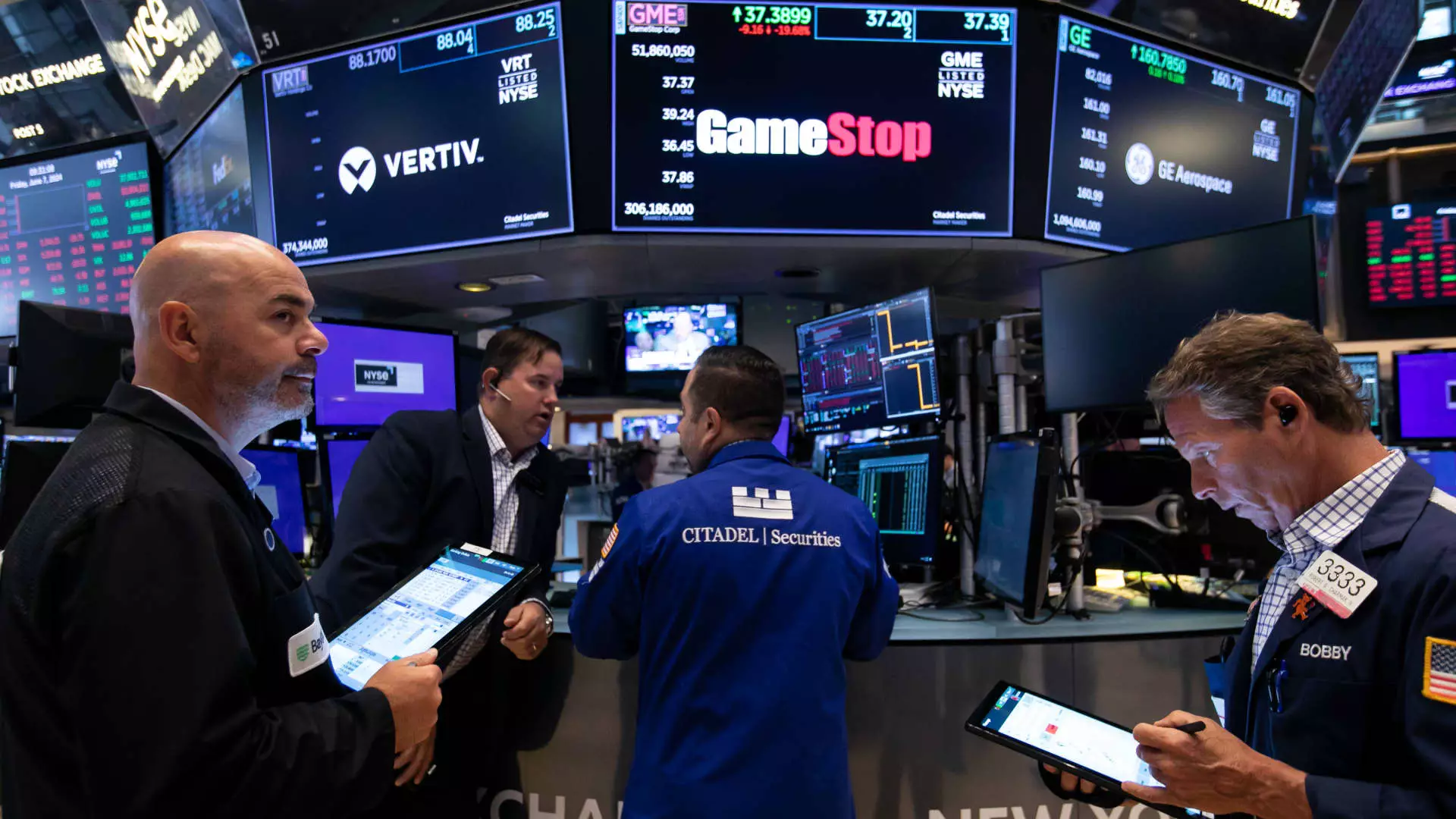On a seemingly ordinary Monday, shares of GameStop and MicroStrategy surged, ignited by an unexpected social media post from Ryan Cohen, GameStop’s CEO. The image he shared with Michael Saylor—the co-founder and chairman of MicroStrategy—caught the attention of investors and analysts alike, hinting at a potential collaboration focused on cryptocurrency. Analysts quickly noted that GameStop, already a favorite among retail investors due to its meme stock status, increased by over 7%, while MicroStrategy, which recently opted for the moniker “Strategy,” experienced a more modest climb of around 4%. This uptick in stock prices not only underscores the influence of social media on market dynamics but also raises intriguing questions about the future direction of both companies in the digital currency landscape.
GameStop has been making waves not just with its stock price, but with strategic initiatives aiming to transition from traditional video game sales to engaging with digital currencies and collectibles. Over the years, the company had ventured into offering crypto wallets—a service intended to integrate cryptocurrency management alongside nonfungible tokens (NFTs). However, the abrupt closure of this service in 2023 due to “regulatory uncertainty” demonstrates the challenges GameStop faces in navigating the complex and often volatile landscape of crypto regulations. The abrupt change highlights their ongoing difficulties in aligning with evolving consumer behaviors and demands that favor digital transactions over physical retail.
Since his entrance into the GameStop board in 2021, Ryan Cohen has been seen as a beacon of hope for the company’s modernization efforts. His experience with Chewy, an online pet products retailer, raised expectations that he could leverage e-commerce trends to revamp GameStop’s traditional business model. While his intentions have been met with enthusiasm from retail investors, the company continues to grapple with a fundamental challenge: adapting to a rapidly changing landscape where consumer preferences are shifting toward digital and online experiences. As Cohen continues to explore innovative avenues for growth, the volatility of GameStop’s stock remains a significant consideration for investors.
In parallel, MicroStrategy has carved a distinct niche in the corporate world through its aggressive acquisition of bitcoin. The firm’s strategic rebranding to “Strategy” further emphasizes its commitment to becoming a leading player in the cryptocurrency ecosystem. Over the past year, MicroStrategy has amassed a staggering $47 billion worth of bitcoin, equivalent to nearly 2.5% of the total market supply. This strategy is notable, especially since the company has funded these purchases primarily through stock and bond sales, showcasing a bold risk-reward approach that appeals to a segment of retail investors eager to capitalize on cryptocurrency’s potential.
The shared image of Cohen and Saylor has ignited speculation about what lies ahead for both companies, particularly in terms of a united front in the cryptocurrency space. As they seek to forge new paths amid regulatory scrutiny and market volatility, the increasing interest from retail investors could lead to significant developments. Whether or not these companies can successfully harness the potential of cryptocurrencies will ultimately determine their trajectories in a rapidly evolving marketplace. Investors are closely watching this unfolding narrative, praying that the recent surge in stock prices signals the beginning of a collaborative strategy poised to impact the gaming and cryptocurrency sectors alike.

